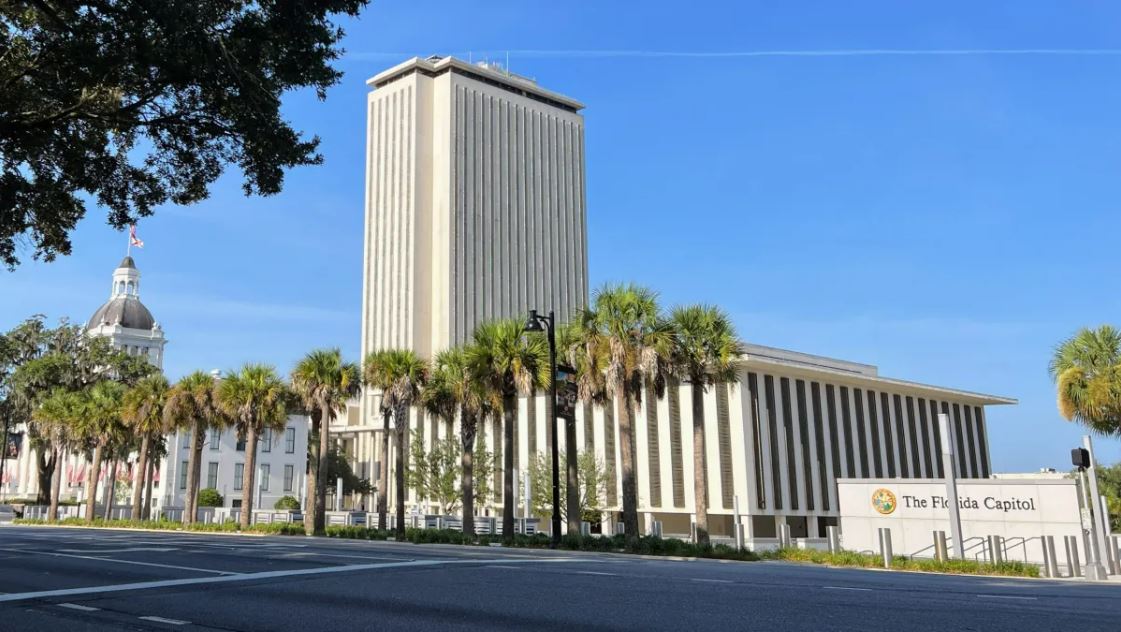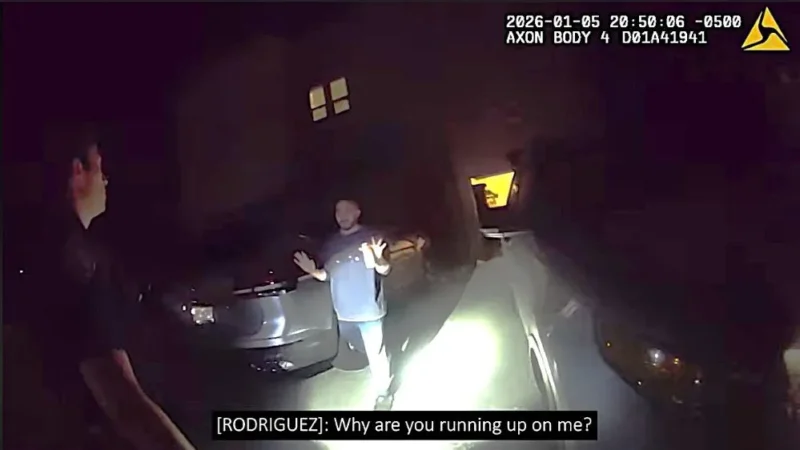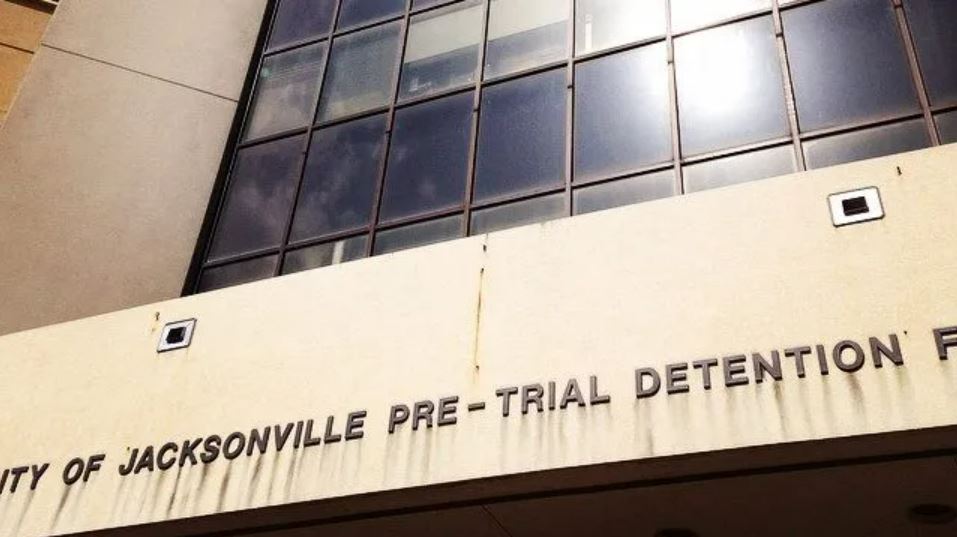The state of Florida will square off with voting-rights plaintiffs in Tallahassee this week in a high-stakes redistricting battle that could have national implications as both sides argue over the constitutionality of protections for Black voters.
The one-day hearing on Thursday follows the state’s stark admission: Gov. Ron DeSantis’ congressional map violated the state’s safeguards against diminishing the electoral influence of racial minorities. DeSantis’ lawyers will argue those protections infringe upon the Equal Protection Clause of the 14th Amendment and should be thrown out.
The two sides will present their arguments in Tallahassee before 2nd Judicial Circuit Judge J. Lee Marsh, a Rick Scott appointee, who could approve a new map in time for the 2024 elections. The judge’s ruling will likely be appealed to the Florida Supreme Court, where DeSantis has appointed the majority of justices.
If DeSantis gets his way, Florida courts would go further than the U.S. Supreme Court has and would advance the legal argument, pushed by many conservatives, that it’s inherently wrong to preserve the political voice of Black voters. That could set Florida’s anti-gerrymandering Fair District standards and the federal Voting Rights Act in conflict with the U.S. Constitution, and open the door to Florida’s case being used to dismantle voting protections nationwide.
It’s a gambit for the governor and presidential candidate whose education and corporate governance mandates have demonstrated his opposition to policies that aim to advance racial equity. But it also gives DeSantis the opportunity to become a hero in right-wing circles.
“It’s a very aggressive play on the part of Gov. DeSantis and Republicans, really pushing toward a vision of a race-blind Constitution,” said Michael Li, senior counsel for the Brennan Center’s Democracy Program.
The argument, he said, seems focused on building DeSantis’ political brand. “It’s not a legal strategy. It’s a political strategy. Win or lose, you get some political benefit out of having this fight.”
The lawsuit’s claim
Last year, civil-rights groups sued the state over its congressional map, alleging it violated the Florida Constitution by diminishing Black voting power, discriminating against Black voters and intentionally drawing districts to benefit Republicans.
The governor initially defended the map, but, in the surprise joint filing this month, the state’s lawyers admitted the new map diminishes Black voters’ ability to elect candidates of their choice.
The state and plaintiffs agreed to focus on North Florida’s congressional district and debate whether voter-approved protections in the state Constitution for minority voting rights violate the U.S. Constitution. Plaintiffs dropped their partisan gerrymandering and race-discrimination claims, ensuring the court wouldn’t strike down any districts elsewhere in Florida.
In exchange, the state agreed to an expedited timeline to potentially restore the boundaries for a district that stretches from Tallahassee to Jacksonville and was formerly held by U.S. Rep. Al Lawson, D-Tallahassee, if the plaintiffs succeed.
The district was first ordered in 2015 by the courts after the Republican-led Legislature drew a map the court determined had violated anti-gerrymandering provisions in the Florida Constitution. Voters approved the amendments in 2010 with more than 63% of voters in support.
DeSantis and his staff have said they believe the Florida Supreme Court wrongly decided that case.
Where the Voting Rights Act factors in
At the heart of this year’s case is something called the “non-diminishment” or “non-retrogression” standard, language in Florida’s Constitution that largely mirrors the federal Voting Rights Act. District maps cannot diminish racial minorities’ ability to elect preferred candidates.
Those protections, mirroring Section 5 of the Voting Rights Act, used to apply to certain counties across the country, particularly in the South and including Florida. But in 2013, the U.S. Supreme Court’s ruling in Shelby v. Holder struck down the formula for determining which jurisdictions received stronger minority voting protections. Florida’s Fair Districts amendments, however, ensured the protections continued statewide.
Now, the named defendants in the case — Secretary of State Cord Byrd, the Florida House and the Florida Senate — have asked the Tallahassee court to strike those safeguards.
“This is a preview into how the governor views the Voting Rights Act,” said ACLU of Florida voting-rights attorney Nicholas Warren.
If Florida courts strike down near-identical wording to Section 5’s non-diminishment language, it could lead to more limitations on protecting racial minorities in redistricting.
“The non-retrogression standard served very well for half a century, and Gov. DeSantis’ efforts are just one further step to weaken minority voting strength,” said Jeff Wice, a professor at New York Law School, where he leads the New York Census and Redistricting Institute.
Even if the courts won’t strike down the standard, the state has asked the court to at least adopt new rules around when it would apply, ensuring North Florida’s Black voters wouldn’t qualify for the protections.
The state’s lawyers asserted that DeSantis could buck the voter-approved Fair District provisions and any other constitutional requirements if he finds them in conflict with federal law. His legal team went so far as to argue that amendments ratified by the citizens deserve less legal protections than statutes enacted by the Legislature. This posture contrasts sharply with the governor’s removal of two elected state attorneys, whom he chastised for allegedly failing to enforce state laws.
A ‘stunning’ legal strategy
Admitting to reducing Black voting power in court is “stunning” for a legal strategy, said Li of the Brennan Center. North Florida has had a congressional district for three decades that allowed Black voters to elect their preferred candidate, and it’s unheard of for a state to eliminate a protected district after its creation, he said.
The state’s admission that it diminished Black electoral strength has other potential benefits. Avoiding a trial reduces the chances DeSantis could face the embarrassment Republicans suffered last decade when top staffers testified at trial about their close coordination with political consultants.
DeSantis has shielded his staff from disclosing much of their internal conversations about his decision to veto a previous map and draw districts that reduced Black voters’ electoral power in North Florida, claiming the conversations were privileged.
“The non-diminishment provision is an integral part of what we tried to do” with the amendment, said Ellen Freidin, who led the campaign to pass the Fair District amendments to the Constitution in 2010. After last decade’s court rulings, the Legislature drew maps that respected the new requirements until DeSantis opposed that effort.
The governor’s intervention led to tensions with Republican leadership in the state Legislature. DeSantis eventually emerged victorious, replacing a district that had elected Black Democrats for three decades with a Republican, white-majority district.
DeSantis himself admitted the Florida Supreme Court’s past precedent required that he protect Black voters in North Florida, but that didn’t stop him from asking the new court, most of whom he appointed, to overturn that precedent.
Both the state Supreme Court and the Republican leadership in the Legislature rebuffed his initial attempts. But DeSantis flexed his political muscle, endorsing an ally in a closely watched Republican primary, a signal the governor may reward members of his party who prove loyal.
At the time, House Democrats, led by Jacksonville’s Angie Nixon and Orlando’s Travaris McCurdy, staged a sit-in protest, arguing the governor was chipping away at Black voters’ influence.
The state’s admission that its congressional map did reduce Black electoral strength was a vindication for Nixon, she said when reached this week. Nixon’s legislative office was moved to the basement after the protest, and DeSantis vetoed all of the appropriations she had secured in this year’s budget.
“It is so on brand for Ron DeSantis and the Republican-led Legislature to continually attack Black communities, Black districts,” she said. “It was done via redistricting last year. They’re doing it with Black history now. At what point does it end?”
A separate federal trial next month will determine if the state intentionally discriminated against Black voters, a more challenging task for plaintiffs who will have to prove intent.
As the courtroom in Tallahassee prepares for a showdown Thursday that could redefine the electoral landscape, the battle over Florida’s congressional map transcends state lines, placing principles of preserving Black political influence on trial.
This story is published through a partnership between Jacksonville Today and The Tributary.
Contact Andrew Pantazi of The Tributary at Andrew.Pantazi@jaxtrib.org and @APantazi. Mary Ellen Klas of the Miami Herald/Tampa Bay Times Tallahassee Bureau can be reached at meklas@miamiherald.com and @MaryEllenKlas.







